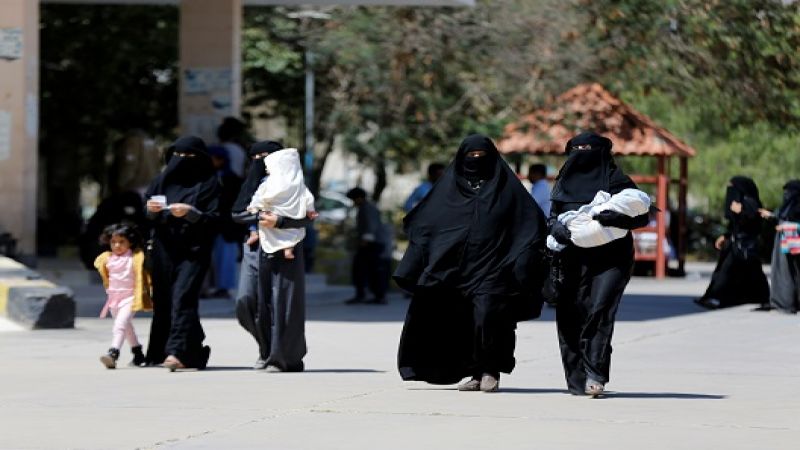
By Haley Ott
The United Nations agency that runs maternity wards and maternal health services across war-torn Yemen says the program is nearly out of money. The agency notified authorities this week that it will no longer be able to support 140 of its 180 facilities in the country.
It's a new, imminent threat to medical care for women in a country ravaged by years of war and disease. The U.N. says tens of thousands of expectant mothers will be at risk of dying during childbirth if funding isn't secured.
UNFPA, the U.N.'s sexual and reproductive health agency, provides basic reproductive healthcare to hundreds of thousands of Yemeni women. The agency says that without its services, 320,000 pregnant women will be cut off from care and 48,000 could die from complications during delivery. The situation is only expected to worsen with the spread of the coronavirus.
"By cutting support to UNFPA, you've basically cut the umbilical cord of the reproductive health system in the country," Nestor Owomuhangi, representative for UNFPA in Yemen, told CBS News.
"It's grave," he said. "It was bad before corona. We have weekly meetings, and… you can see an aura of hopelessness, given the corona that's knocking on our doors."
Before the coronavirus pandemic, aid groups were already calling the situation in Yemen the worst humanitarian crisis in the world. Years of brutal conflict between the Iran-backed Houthi rebels and the Saudi Arabia-backed government have decimated the country's infrastructure and led to widespread famine and disease.
"And then you have a situation where you have the coronavirus that has devastated the world, and for Yemen, we are looking at a population that has been resilient in a sense, but has gone through all kinds of catastrophes - of cholera and malnutrition - and therefore their immunity levels are low," Owomuhangi said.
People in Yemen already have very limited access to healthcare, with only about half of the health facilities functioning across the country. Of those, only 20% offer maternal and child health services - many of which are supported by UNFPA. If it is unable to raise more funds by July, it will be forced to close up to 90% of its services in Yemen.
"They have no health system, and there is no political organization to support them. So how hopeful are we? We only know that the hopes of the population are on us," Owomuhangi said.
UNFPA operates a wide range of sexual and reproductive services in many countries, but in Yemen it focuses primarily on life-saving interventions during childbirth.
"It's already the minimum service," Arthur Erken, UNFPA's director of strategic partnerships and communications, told CBS News. "These health facilities that lack staff, that lack supplies, that have been bombed or been severely damaged by the war, are already in a difficult state - these 140 need to stay open. Otherwise the consequences will be directly – the health and death will be directly a result of closing (them). Of course, if you have no money, that's pretty much end-of-story," he said.
Even before the coronavirus started spreading across the world, the agency didn't have enough funding to make it to the end of this year. When a donor conference was cancelled in April because of the pandemic, it left them in dire straits. UNFPA says it now needs $59 million to continue operations in Yemen until the end of 2020, plus another $24 million to deal with the extra burden of COVID-19 in the country.
"Women are pregnant. They were pregnant before the crisis. They're pregnant now. How do you deal with that?" said Erken. He said the crisis can only be addressed by the international community collectively, and he urged nations to step up through the U.N., "to make sure that being pregnant is not a death sentence in the coronavirus crisis."
Only a few dozen cases of COVID-19 have been confirmed in Yemen, but on Friday, the international healthcare nonprofit Doctors Without Borders said that, because testing capacity in the country is "extremely limited, it is impossible to know the full extent of the spread of the virus." The charity Save the Children said it has seen a surge in deaths of people with coronavirus symptoms in the southern city of Aden - approximately 50 people a day over the last week.
"Our hope is in the hope of the people who believe that we can make a difference," Owomuhangi said. "And for that reason we have no choice but to believe that we can be able to provide support, whatever we can, not to let the population down."
Source: CBS News, Edited by Website Team